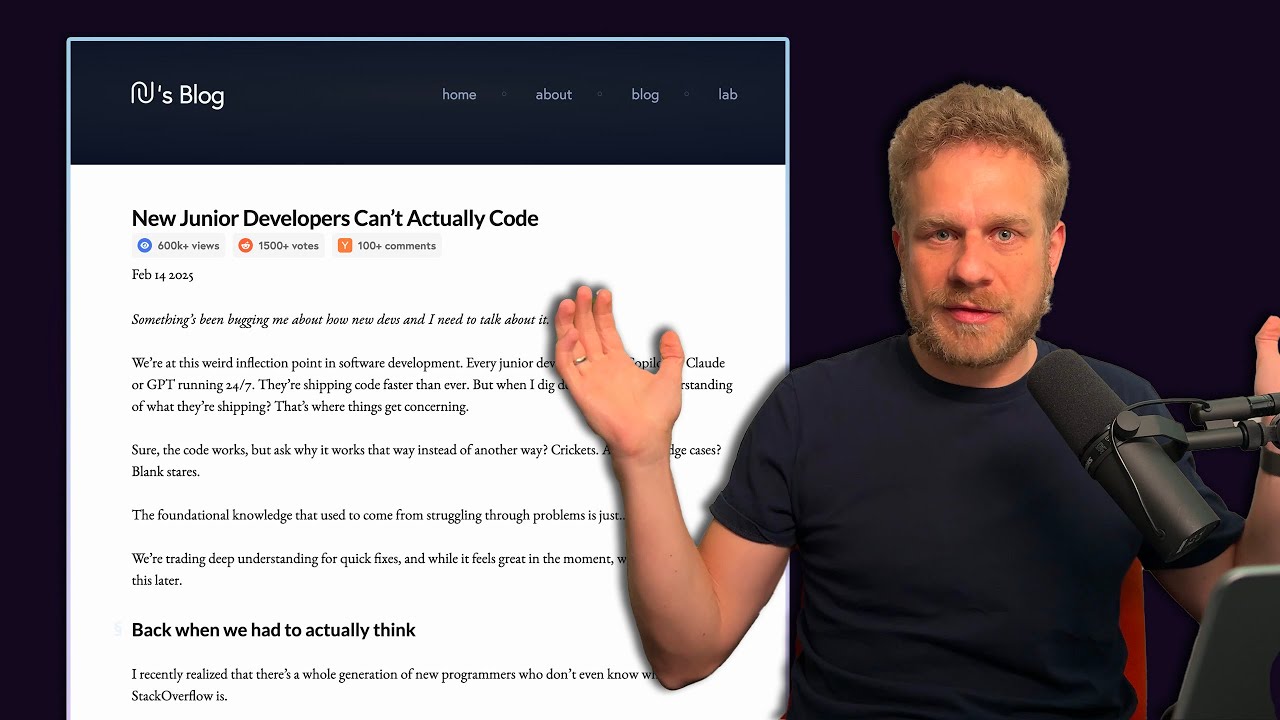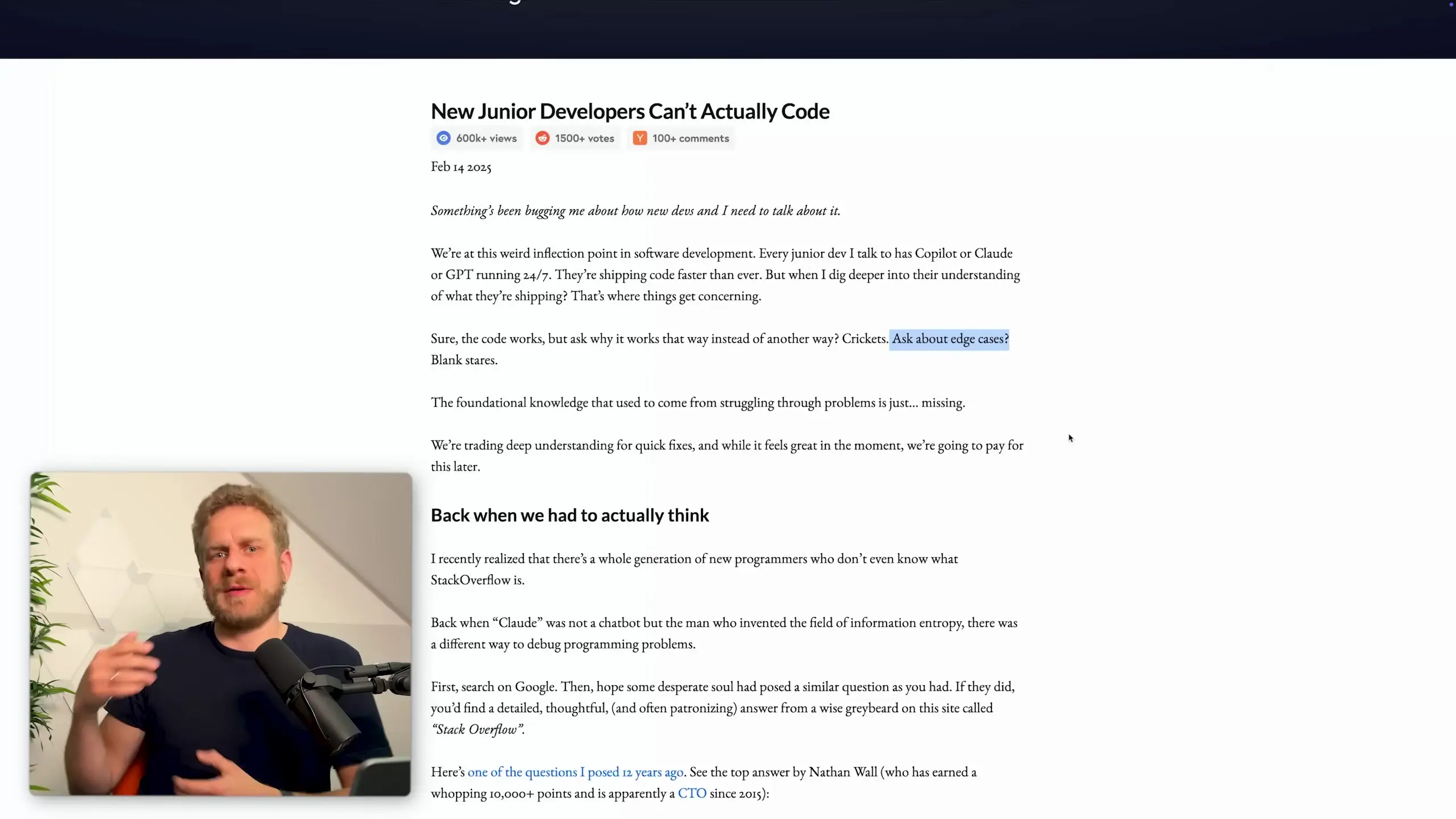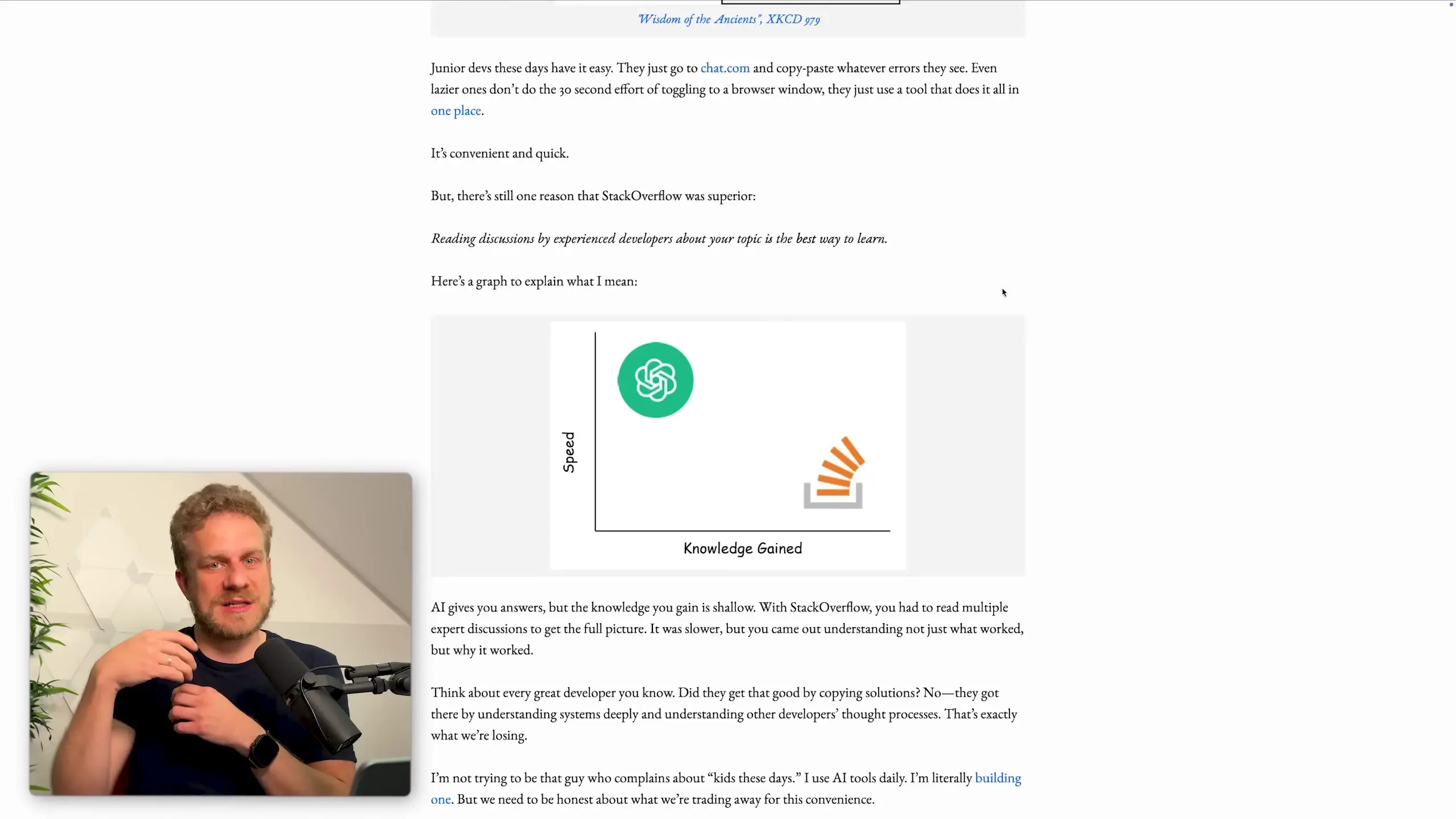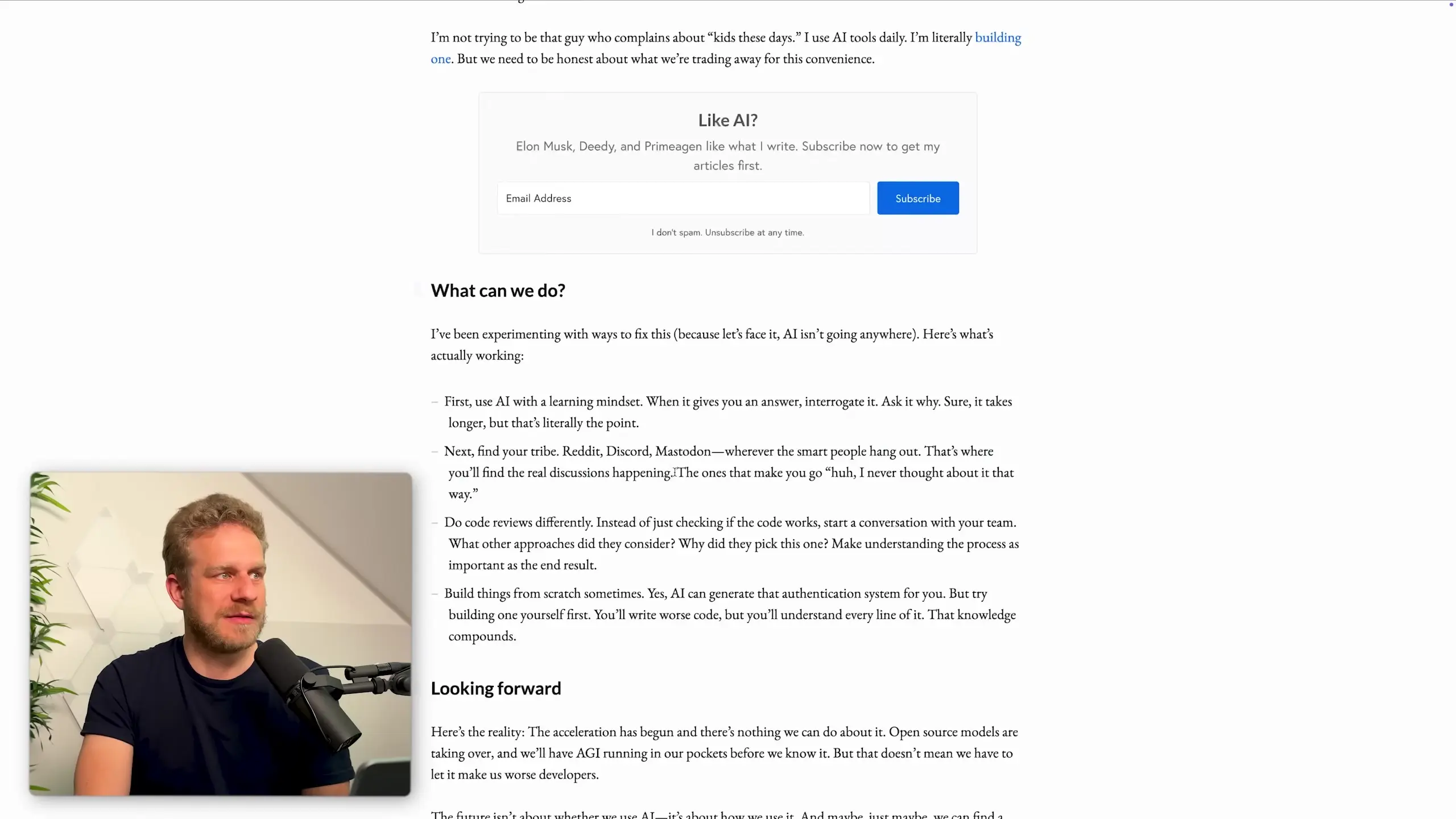
The software development landscape is experiencing a profound transformation with the rise of AI coding assistants. Today's junior developers are entering a world where tools like GitHub Copilot, Claude, and ChatGPT are not just available but often central to their workflow. While these tools offer unprecedented productivity gains, they're also fundamentally changing how developers learn and understand code.
The New Reality: AI-Assisted Development
Junior developers today are shipping code faster than ever before. With AI assistants running 24/7, they can quickly generate solutions, especially for boilerplate code and common building blocks. This productivity boost is undeniable and valuable in many contexts—from prototyping to startup environments where speed is essential.
However, this efficiency comes with a potential cost. When developers rely heavily on AI to generate code without understanding the underlying principles, they may miss critical considerations around edge cases, security implications, and architectural decisions that could impact their applications in the long run.

The Learning Gap: Quick Solutions vs. Deep Understanding
The traditional path to developer expertise often involved hours of struggling through problems, searching Stack Overflow, and piecing together solutions from various sources. This process, while sometimes frustrating, built a foundation of knowledge that extended beyond the immediate problem at hand.
AI-assisted development can short-circuit this process. When developers can get immediate answers without digging deeper, they might miss the context, alternatives, and edge cases that were previously discovered through more thorough research and discussion.
- AI provides immediate solutions but may not explain the 'why' behind code choices
- Developers might miss edge cases that aren't obvious in their initial problem statement
- The foundational knowledge that comes from struggling through problems is often bypassed
- Quick fixes feel productive but can lead to knowledge gaps that become apparent later
The Stack Overflow Effect: Learning Through Community
Before AI assistants became ubiquitous, Stack Overflow was the go-to resource for developers facing challenging problems. Beyond just providing solutions, Stack Overflow offered something uniquely valuable: community discussions that explored multiple approaches, debated trade-offs, and often revealed information developers didn't even know they needed.
For example, a question about converting strings to numbers in JavaScript might yield not just a code snippet, but a detailed explanation of the differences between parseInt(), parseFloat(), the Number() function, and the unary plus operator (+). These discussions exposed developers to nuances they might never have considered if they'd simply received a working solution.

Incidental Learning: The Hidden Value of Research
One of the most valuable aspects of traditional problem-solving approaches was incidental learning—picking up knowledge you weren't explicitly looking for. When browsing Stack Overflow threads or reading blog posts, developers would frequently encounter information tangential to their immediate problem but valuable for their overall growth.
This serendipitous discovery process is harder to replicate with AI tools, which typically provide focused answers to specific questions. Unless developers deliberately ask for additional context, alternatives, or deeper explanations, they may miss out on this broader learning opportunity.
Balancing AI Assistance with Deep Learning
The solution isn't to abandon AI tools—they're powerful assets that are here to stay. Instead, developers need to adopt strategies that leverage AI while still building deep understanding:
- Ask AI not just for solutions, but for explanations of why the solution works
- Request alternative approaches and compare their trade-offs
- Use AI-generated code as a starting point, then take time to understand each component
- Deliberately seek out edge cases and security implications
- Supplement AI assistance with community resources like Stack Overflow, Reddit, and technical blogs
- Practice implementing solutions from scratch after seeing AI-generated examples
- Engage in peer code reviews to benefit from human perspectives

The Future of Developer Learning
As AI tools continue to evolve, the skills that differentiate exceptional developers will also change. While AI can handle increasingly complex coding tasks, the ability to architect systems, understand trade-offs, anticipate edge cases, and make sound engineering decisions will become even more valuable.
The developers who will thrive in this new landscape won't be those who can simply prompt an AI effectively, but those who can critically evaluate AI-generated solutions, understand their implications, and integrate them into robust, maintainable systems.
Developing AI Skills That Will Remain Relevant
As developing artificial intelligence continues to transform the industry, developers should focus on building skills that complement rather than compete with AI capabilities:
- System architecture and design thinking
- Security awareness and threat modeling
- Performance optimization and efficiency analysis
- Cross-functional collaboration and communication
- Problem definition and requirements analysis
- Testing strategies and quality assurance
- Understanding business contexts and user needs
Conclusion: Embracing AI While Preserving Craftsmanship
The AI revolution in software development offers tremendous opportunities for productivity and innovation. However, it also presents challenges for how developers learn their craft and build the foundational knowledge needed for long-term success.
By approaching AI tools as partners rather than replacements for learning, developers can harness their power while still developing the deep understanding that distinguishes truly exceptional engineers. The future belongs to those who can leverage AI effectively while maintaining the curiosity, critical thinking, and comprehensive understanding that has always been at the heart of great software development.
As we navigate this transition, the developer community must collectively ensure that AI tools enhance rather than diminish the depth of knowledge in our field. The AI impact on future jobs in software development will likely favor those who can think beyond the code to the larger systems, problems, and people they serve.
Let's Watch!
7 Ways AI is Changing How Developers Learn to Code
Ready to enhance your neural network?
Access our quantum knowledge cores and upgrade your programming abilities.
Initialize Training Sequence